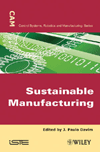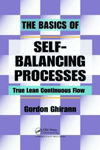They garnered a great deal of publicity, but no one bothered to ask how these people keep their perishable food cold and their homes warm; where they get food to eat; how they travel between home, office and playground; and how they would even get to Washington to condemn manufacturing companies. To the best of my knowledge, this hypocritical farce died aborning.
Then, as now, there are hypocrites who eagerly embrace the comfortable lifestyle that manufacturing technology makes possible, while condemning the manufacturing companies that provide them with this lifestyle.
Fast forward to the World Summit on Sustainable Development 2002 in Johannesburg, South Africa. In the context of this forum, the sustainable development mantra means economic growth must be balanced with care for the environment, and curbed to meet political goals. Commendable and unassailable objectives, until one realizes that the mantra requires the "proper" balance and appropriate goals to be only those defined by environmentalists and statists.
Reports suggest that the attempt to impose these views failed. Indeed, James K. Glassman, American Enterprise Institute fellow, says Johannesburg may be looked upon as a watershed event, the place where world leaders penned the epitaph to extravagant, unworkable and often damaging multilateral agreements.
The sustainable development mantra fails because economic development is not a zero-sum game; your gain does not inevitably require my loss. It also fails because it assumes a priori that the world is a static system, which it isn’t; the world is a dynamic system.
More to the point, George Melloan, deputy editor, international, was almost prescient back in July 1999 when he wrote in The Wall Street Journal "The symbiotic relationship between science and engineering on the one hand, and political development on the other, is a matter of some historical importance. It perhaps explains why modern statists, the Green parties of Europe, for example, have such an antipathy toward technology and spend a great deal of time trying to spread fears about the products of the laboratories and drawing boards. They perhaps realizesubconsciously if not consciouslythat technological advances have been a powerful force in freeing individuals from the power of the state."
Science, engineering, technology and manufacturing are the source of real sustainable development. Politicians, elite intellectuals and self-appointed savers of the world don’t make anything beneficial to their fellow human beings.
You manufacturers do.


